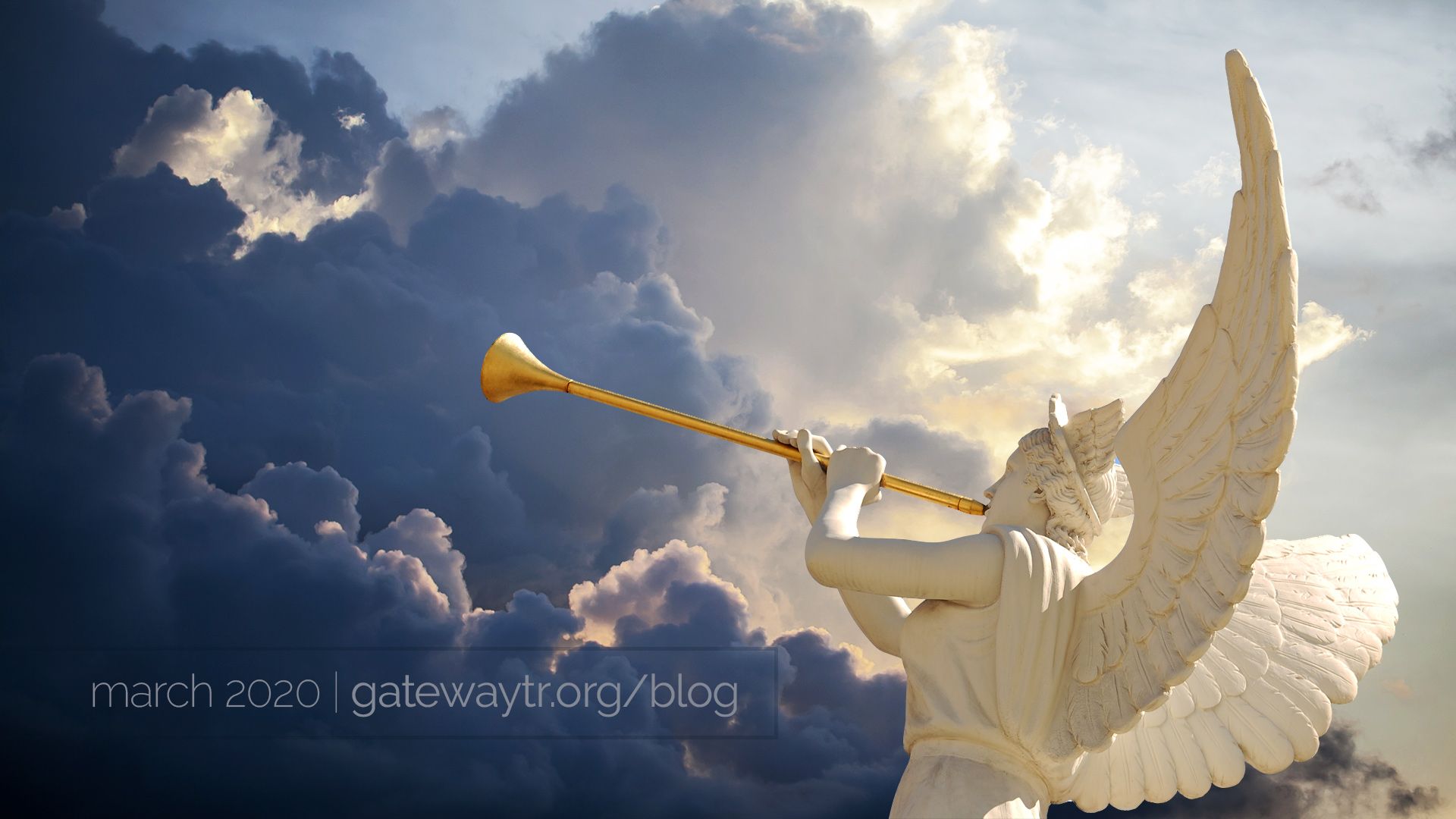Revelation 17–19 and Psalm 27

Pairing Psalm 27 with these climactic, triumphant chapters in Revelation demonstrates the patient hope and victorious end that is in store for the Lord’s people. Because David believes with confidence that he “shall look upon the goodness of the LORD in the land of the living” (Psa 27:13), he can proclaim,
Wait for the LORD;
Be strong, and let your heart take courage;
Wait for the LORD! (Psa 27:14)
Among several recurring themes in Revelation, there is a call for the suffering servants of the Lord, including even those who have already been martyred, to wait for a little longer, and to endure the wickedness of the earth in light of the Lord’s imminent return (Rev 6:9–11; 13:10; 14:12).
God does not disappoint those who wait. He brings to ruin the essence of all false religion (Revelation 17) and all worldliness (Revelation 18) and enters the world as a conquering king coming to establish his kingdom (Revelation 19). Truly at that time, all those who believed God and knew the Lord from all times and all peoples will look on his goodness in the land of the living.
But what attitude characterizes those who genuinely follow the Lord? Whose hearts should be encouraged as they “wait” on him?
I was captivated this morning by the little vignette in Revelation 19:10. John’s guide is one of the very angels who poured out the bowls of God’s wrath in chapter 16 (cf. Rev 17:1). Very impressive! And when this mighty angel reveals to John the image of the coming of the Lord and the knowledge that the saints of God will be the Bride at the “marriage super of the Lamb,” John is overwhelmed and responds in this dramatic fashion:
Then I fell down at his feet to worship him, but he said to me, “You must not do that! I am a fellow servant with you and your brothers who hold to the testimony of Jesus. Worship God.” For the testimony of Jesus is the spirit of prophecy (Rev 19:10).
What an amazing, unexpected incident that takes place against this backdrop of the climax of redemption history! The King’s coming has been announced (Rev 19:1–2, 6). The twenty-four elders and the living creatures are again worshiping before the throne of God (19:4). It’s like the last great drumroll before the final, earth-splitting chorus, the music building for the crescendo. This is the return of the Lord! This is what all believers have been waiting for! The heavens are already starting to roll back to reveal his glorious coming. And what does John do?! He looks away! Dropping at the angel’s feet, John begins to worship him!
The angel’s shocked response is appropriate and instructional. In essence he says, “No, no, no! What are you doing! I serve the Lord like you do, and I am a witness to Jesus like you are. The one who you should worship is God!”
But then the angel says something that I think captures the essence of the message of the whole book of Revelation: “The testimony of Jesus is the spirit of prophecy.” This sentence is a predicate nominative for you Greek students (and English majors). The construction is A = B. The testimony about Jesus = the spirit (essence) of prophecy. For our understanding of the angel’s point, however, we might switch around the construction in English to get the proper emphasis in Greek: “The spirit of prophecy is the testimony of Jesus.” The point of the prophetic word is not to direct our attention anywhere else or our worship to anything or anyone else. The spirit or essence of prophecy is to point us to Jesus and his triumphant glory.
And this is exactly what the angel does for John. He turns his attention back to Christ himself. The angel, as it were, lifts John to his feet and turns John’s head to behold what should be the most important object of his attention. And, in verses 11 and following, John beholds the heaven open and the “Faithful and True” (19:11) coming with crowns on his head (19:12), the “King of kings and Lord of Lords” (19:16).
I was instructed and encouraged by this scene of John and the angel. How often when the Lord desires to pull back the curtain to reveal his glory to us do we become distracted by something else that captures our attention and diverts our gaze from him! There are profound events happening in the world today that we did not expect merely weeks ago. And besides that, in our own little spheres we can always find things that attract and energize us outside of our knowledge of God. What is more, we can be tempted to worry about what is going to happen to us and to our family. Yet, as we should always do, let us make sure our focus is trained in the proper direction. Let’s renew our hope in the Lord and in his coming each day, through the Word and through prayer, keeping our eyes on him. And in the words of the angel’s simple rebuke, let us “worship God.”
